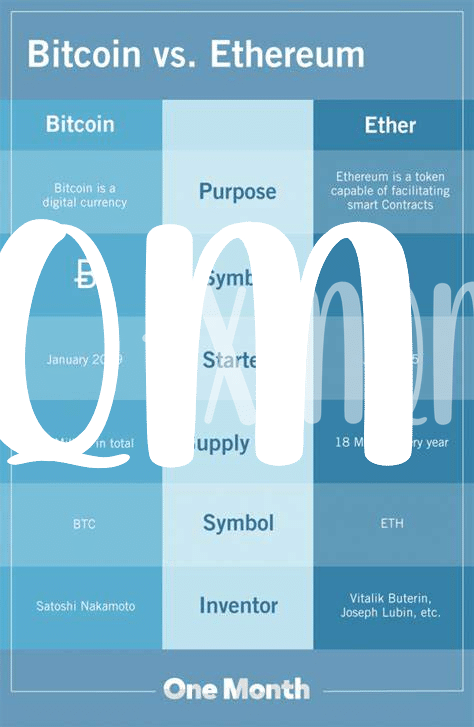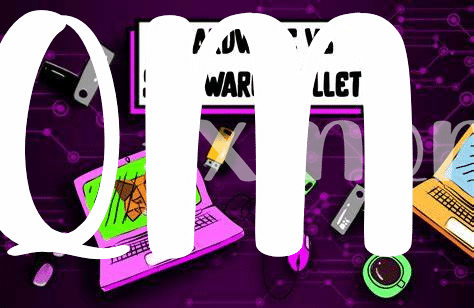🌐 Understanding Bitcoin Storage Basics

Think of Bitcoin like digital gold that you need to keep safe. Just like you wouldn’t leave gold bars lying around your house, you shouldn’t keep your Bitcoin unprotected. In the world of Bitcoin, a “wallet” acts as your personal safe. There are mainly two types: software wallets, which are like sophisticated apps on your computer or phone, and hardware wallets, which are physical devices much like a USB stick but a lot smarter. Each has its own way of keeping your digital gold secure. Imagine locking your Bitcoin in a vault that only you have the key to; that’s essentially what these wallets do. However, the key here (no pun intended) is knowing that while both types aim to protect your Bitcoin, they go about it in very different ways.
| Type | Description |
|——|————-|
| Software Wallets | These are programs or apps installed on your device, keeping your Bitcoin accessible anytime, anywhere as long as you’re connected to the internet. |
| Hardware Wallets | Physical devices that store your Bitcoin offline, making it harder for hackers to access since it’s not connected to the web. |
Choosing the right wallet is like choosing a personal guardian for your digital treasure. It’s all about finding the perfect balance between convenience and security for your needs.
💻 Exploring Software Wallets: Pros and Cons
Imagine carrying your money in an invisible wallet that you can access from anywhere, anytime. That’s pretty much how software wallets work for Bitcoin. These wallets live on your computer or smartphone, acting like your personal treasure chest in the digital realm. They are remarkably convenient, allowing you to send, receive, and manage your Bitcoins with just a few clicks or taps. What’s special is their accessibility; whether you’re at home or trekking across mountains, your digital wallet is right there with you. But, as with anything valuable, there’s a catch. Keeping your treasure online means it could attract unwanted visitors, like hackers, hunting for digital gold.
Security in the digital world is serious business. While software wallets offer convenience, they also demand vigilance. Your PC or phone is like a door to your digital valuables, and if that door’s left unlocked, well, risks loom large. But fear not! Steps like using strong passwords, two-factor authentication, and regular backups can strengthen your digital fortress. For those seeking deeper insights into securing their digital currencies and understanding the nuances of Bitcoin transactions, diving into resources such as https://wikicrypto.news/building-secure-smart-contracts-on-the-bitcoin-blockchain can be incredibly enlightening. So, whether you opt for the simplicity and accessibility of software wallets or lean towards other storage methods, staying informed is your best defense.
🔒 Diving into Hardware Wallets: Safety First

Imagine having a super strong safe where you keep all your special coins. That’s pretty much what hardware wallets are like for Bitcoin. 🛠️ These little devices are like your personal vaults that you can actually hold in your hand. They are made to keep your Bitcoin safe and sound, away from the reach of online hackers. Since they’re not connected to the internet, it’s like keeping your digital coins in a fortress. But, just like carrying around a physical wallet, you have to be careful not to lose it or let it get damaged. 🤔 Remember, with great security comes the need to be super careful. By choosing a hardware wallet, you’re putting a big, strong lock on your digital treasure chest, making sure only you have the key. It’s an excellent choice if safety is your top priority.
🔄 Comparing Access and Convenience

When it comes to keeping our digital coins safe, we often find ourselves at a crossroads – should we store them in a hardware wallet that’s like a super secure vault, or go for a software wallet that’s as easy to use as our favorite smartphone apps? Think of hardware wallets like having your own personal safe at home. It’s super secure, but you can’t pop over to it if you’re out and about. On the flip side, software wallets are more like carrying a wallet in your pocket. It’s super handy and always with you, but there’s a bit more risk that someone could sneak in and take something if you’re not careful.
While pondering over which path to take, it’s crucial to weigh the ease of whipping out your phone and making a quick transaction against the peace of mind that comes with knowing your digital treasure is locked up tight in a physical gadget. Add to this mix the wisdom from the world of effective bitcoin trading strategies for volatile markets regulatory outlook, and you’ve got a solid toolkit at your disposal. Whether you’re making a quick purchase online or beefing up your security measures, knowing your needs and how you plan to interact with your digital assets can guide you towards making a choice that blends convenience with security smoothly.
🛡️ Security Measures: Avoiding Potential Pitfalls
When it comes to keeping your digital coins safe, think of it like guarding a treasure chest. In the world of Bitcoin, there are sneaky pirates (hackers) and choppy seas (security threats) to navigate. First off, always update your software or hardware wallet to the latest version – it’s like fortifying your ship against attacks. A strong, unique password is your treasure map; only you should know the path to your wealth. Consider also the two-factor authentication (2FA) as your parrot – an extra pair of eyes keeping watch. For those with a significant stash, a multisignature wallet requires two or more keys to access the loot, making it tougher for intruders to dive in. Remember, keeping a backup of your wallet’s key information, encrypted, of course, ensures that you won’t be marooned on a deserted island should technology fail you. Here’s a quick glance at how to shield your treasure:
| Security Measure | Benefit |
|---|---|
| Software and Hardware Updates | Blocks new threats |
| Unique, Strong Password | Personal gatekeeper |
| Two-Factor Authentication | Double-checks identity |
| Multisignature Wallet | Requires more than one key |
| Encrypted Backup | Safety net for data |
Navigating these waters may seem daunting, but taking the right security measures helps ensure that your digital treasure remains just that – yours.
💡 Making Your Choice: Tailored to Your Needs

Deciding where to keep your Bitcoin might seem a bit like choosing a favorite ice cream flavor – overwhelming at first due to all the options, but ultimately rewarding once you find your perfect match. Whether you lean towards the always-accessible, on-the-go nature of software wallets or prefer the robust, vault-like security of hardware wallets, the choice should hinge on what feels right for you and your unique needs. 🔄 Convenience might be your top priority if you’re frequently trading or using Bitcoin for daily transactions, steering you towards software solutions. On the flipside, if large investments are your game and you sleep better knowing your digital gold is tucked away safely, a hardware wallet could be your knight in digital armor. 🛡️ Remember, staying informed about potential security risks and understanding how to protect yourself is paramount, no matter your choice. As you navigate this decision, consider integrating knowledge from resources like a step-by-step guide to bitcoin mining for newcomers regulatory outlook, which not only demystifies the mining process but also provides a glimpse into the regulatory environment of Bitcoin. By aligning your choice with your lifestyle, transaction habits, and security comfort level, you’ll ensure your Bitcoin journey is both enjoyable and secure.
